Kiowa elder bonds with 10-year-old actress on ‘News of the World’ movie set
Tom Hanks gets his picture with the Kiowa cast and Dorothy WhiteHorse DeLaune from the film “News of the World.” Photo by Lynda DeLaune.
“I can look you in the eye and just about tell sincerity in somebody,” said Dorothy WhiteHorse DeLaune, who built an enduring friendship with a then-10-year-old German actress on a New Mexico movie set.
“I knew she was a special child, there was nothing snobby or anything,” said WhiteHorse, 88. “If she found me on the set, she’d come over and get her little chair and sit with me.”
The first time WhiteHorse met Helena Zengel, she gave the child star a beaded cross. The second time, WhiteHorse gave her a little doll. Zengel was so touched by the gifts that she couldn’t put them down, WhiteHorse said.
Along with a Kiowa linguist, WhiteHorse taught Zengel the language and customs of the Kiowa Tribe for the girl’s role in “News of the World,” which stars two-time Academy Award winner Tom Hanks.
On Monday, “News of the World” received four Academy Award nominations for best original score, best cinematography, best production design and best sound. The movie was shut out in nominations for best picture, Hanks or Zengel.
“News of the World,” released on Christmas Day 2020, is based on a 2016 novel of the same name by Texas novelist Paulette Jiles. The film follows Captain Jefferson Kyle Kidd (Hanks), a Confederate veteran who travels from town-to-town reading the news, as he seeks to return the 10-year-old Johanna (Zengel) to her last remaining relative. Johanna had been captured and raised from a young age by the Kiowa after her German settler family was killed in Texas.
“It was a thrilling experience for me at this age,” WhiteHorse said of her work with the movie production. “But I’ve been wanting to tell about our tribe. It has been my lifetime goal. I’m still proud to be a Kiowa woman.”
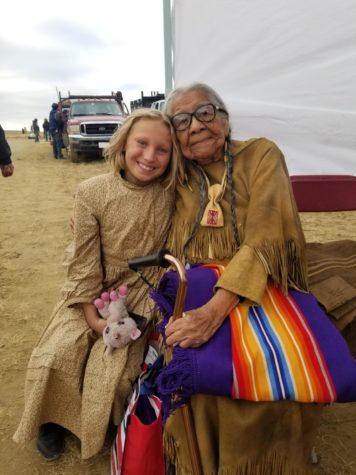
On Jan. 25, 1933, WhiteHorse was born in a tipi near Anadarko, which is 60 miles southwest of Oklahoma City. She is the last remaining survivor of her parents’ 12 children and many more adopted siblings.
WhiteHorse, who had eight children of her own, was widowed when she was 50 and never remarried. She prefers to be called by her maiden name.
WhiteHorse is one of just a handful of Kiowa Elders left who are fluent in the language. She said she didn’t learn English until she was about six years old.
Her family used to hold their Native American church meetings at night, “so the agents wouldn’t catch them and tear down the tipi before daylight.” she said, referring to the government Indian agents.
“If they were caught practicing any of their things, they were not going to kill us in that time but they were going to withhold their rations and their land allotment money and everything. And I grew up like that. And we just kept on practicing.”
WhiteHorse and the linguist began teaching the young actress the Kiowa language needed for her role nearly a year before the producers invited WhiteHorse and her daughter Lynda to join the set in New Mexico in September 2019. That’s when WhiteHorse first met Zengel in-person.
“It’s not every day you have a production and movie crew who want to know more about your tribal history and language,” Kiowa Chairman Matthew Komalty said.
“They couldn’t have picked a better teacher than Dorothy Whitehorse DeLaune,” Komalty said. “She is our royalty and a tribal treasure, her teachings and knowledge are irreplaceable. We hold her in high regard and most of all we are proud of her and her accomplishments.”
WhiteHorse said there was a private screening of the movie in Lawton, but due to COVID she could invite only a few people instead of the entire tribe. The people who attended were “just full of wonder” about Zengel’s ability to speak Kiowa, WhiteHorse said.
“I think you have to have something extra to learn our crazy language. It is hard,” she said.
WhiteHorse said Zengel picked up even the most difficult Kiowa sounds easily. Even the way she carried herself was true to the Kiowa way, WhiteHorse said.
“My favorite scene of her is walking by his (Hanks’) horse, when there’s nothing but cowboys all over in that scene where she’s walking with the blanket on,” WhiteHorse said. “I have seen them do those shots when I went the first time. The poor little thing’s walking with her hair all over (the place) but that’s the way we actually lived.”
The way Kiowas lived was done with historical accuracy thanks to the research the producers’ conducted. Gary Tsoodle, 62, a Kiowa Tribe member, said he appreciated the effort.
Tsoodle lives in Anadarko and portrayed the Kiowa chief. He said he watched the friendship grow between Zengel and WhiteHorse. Sometimes, he would see Zengel following WhiteHorse around “just to get more familiarity with the role,” he said.
“I did get a chance to talk with the young lady, and we had a real good talk,” Tsoodle said. “She had a lot of fun on the set. She’s very, very friendly.”
The Kiowa language has a lot of nasal sounds and syllables that sound “spit out,” WhiteHorse said, but Zengel picked it up. WhiteHorse called her “a wonder child.” At only 10 years old, she was already very knowledgeable about Kiowa history, even before learning several lines of the language for her role.
WhiteHorse said Zengel really came to hang on to her quite a bit while she was on the set. They have even kept in touch via telephone after WhiteHorse returned to her home in Anadarko.
WhiteHorse is not new to teaching the Kiowa language to children of all ages and ethnicities.
She first began telling Kiowa stories for the Anadarko school system, “just little old stories to keep the lullabies together,” she said. She once took her class on a field trip to see Palo Duro Canyon in Texas, the final holdout for the Kiowa clan before their removal in the late 19th century.
Around 1875, the soldiers killed all of the Kiowa horses, forcing the tribal members to walk 225 miles east to Fort Sill, WhiteHorse said. They called the event the Wrinkled Hand Chase — wrinkled from walking in the rain during their removal.
“And that was our last hurrah,” WhiteHorse said. “Each tribe, I imagine, has their own Trail of Tears. The Navajos have theirs, and we have ours.”
WhiteHorse still teaches Kiowa to Anadarko students. In her mind, her role in the making of “News of the World” highlights her urgency to pass on her knowledge and wisdom to the next generation.
“There’s not too much time because with this movie, I’ve even had several Kiowas say ‘give me your autograph’ and I say, hey, I’m going to be 88 years old. I have no ambition anymore about trying to do something but the least I can do is tell you about it so you can go on and learn it. Learn our language, learn our history, and keep on.
“I keep telling my class, ‘come on, hurry up and learn this,’” WhiteHorse said.
Gaylord News reporter Nancy Marie Spears is a member of the Cherokee Nation.
Gaylord News is a reporting project of the Gaylord College of Journalism and Mass Communication at the University of Oklahoma.

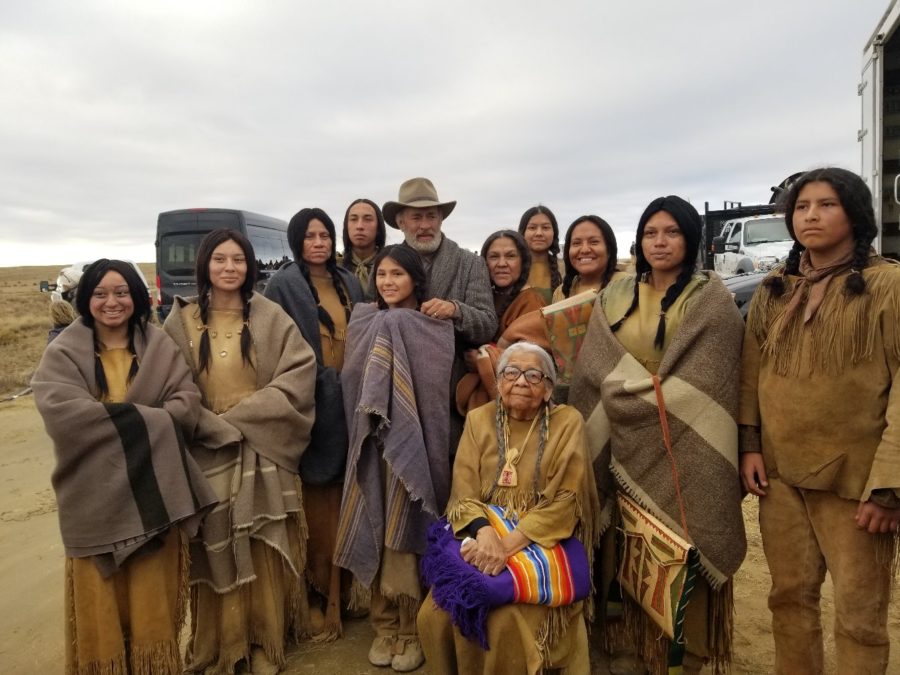
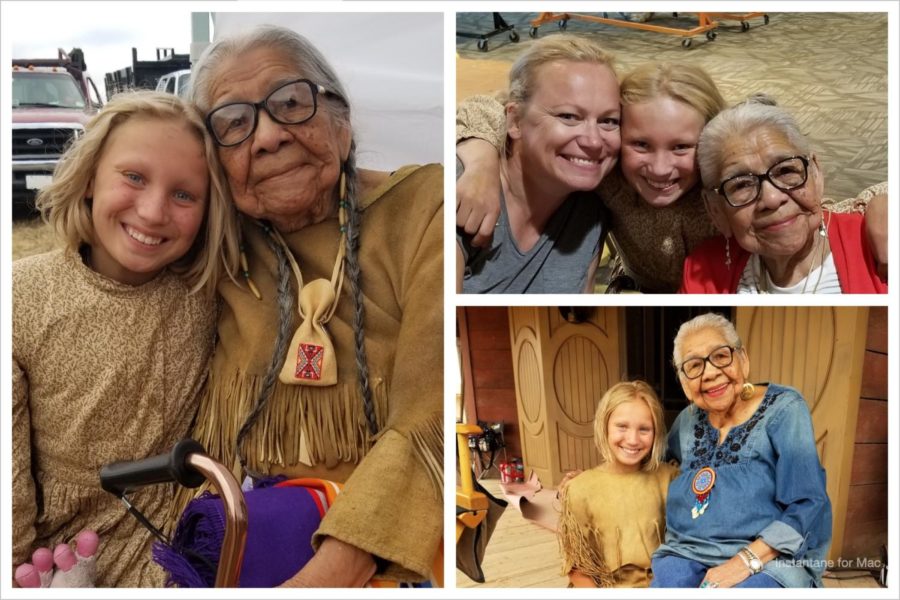
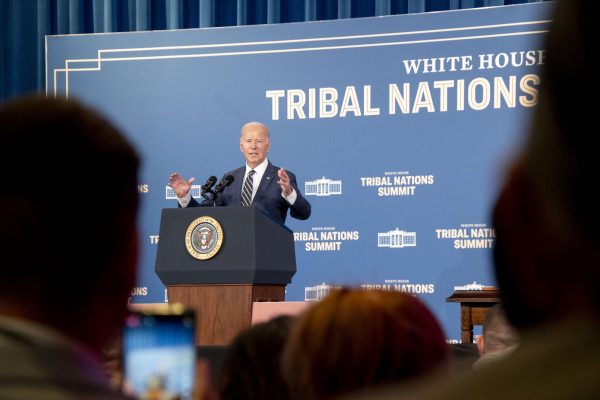
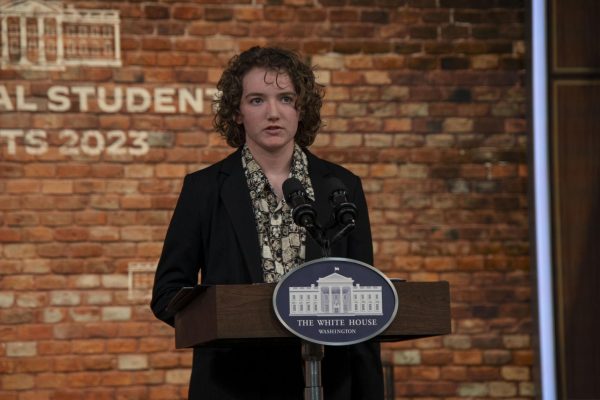
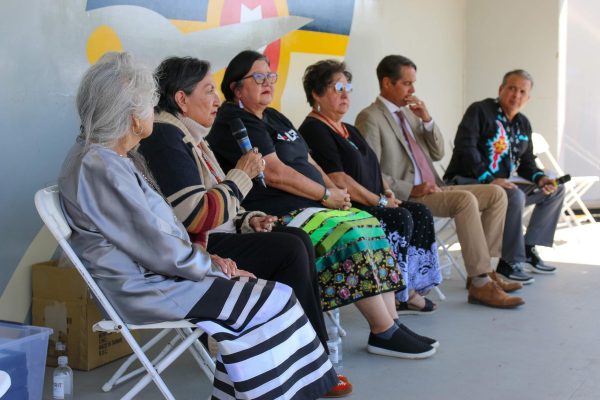
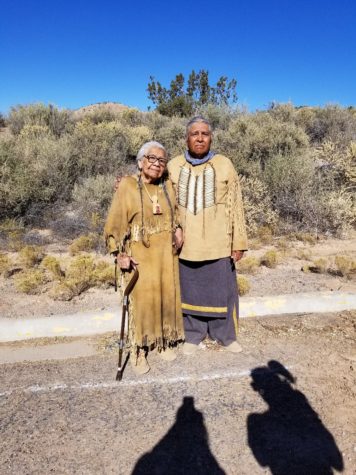
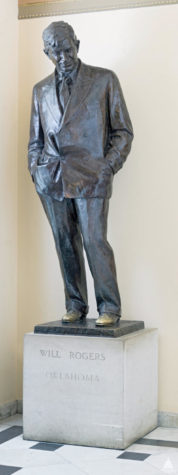


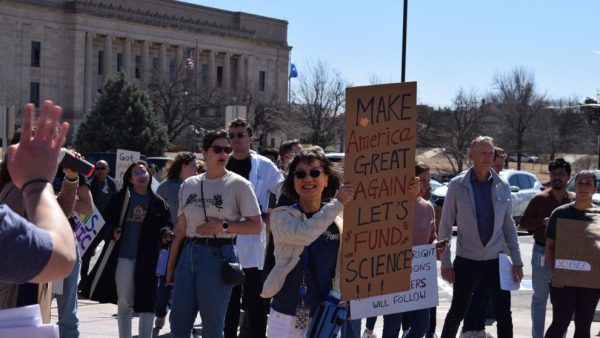
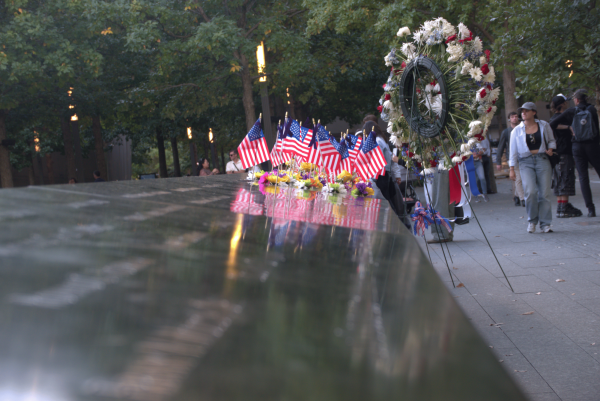
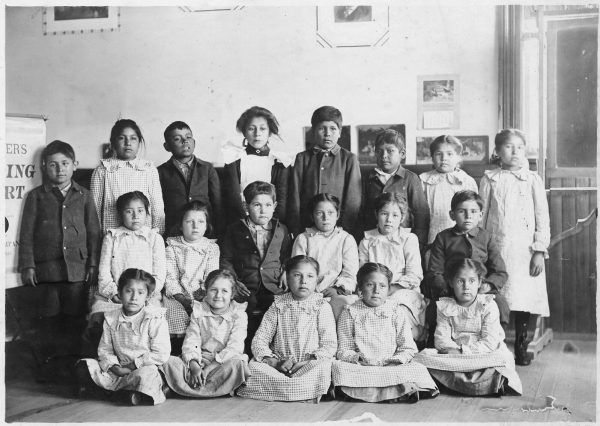
Israel • Mar 15, 2021 at 10:09 pm
I thought that this story was very interesting, full of information, and superbly written .I am very impressed !!